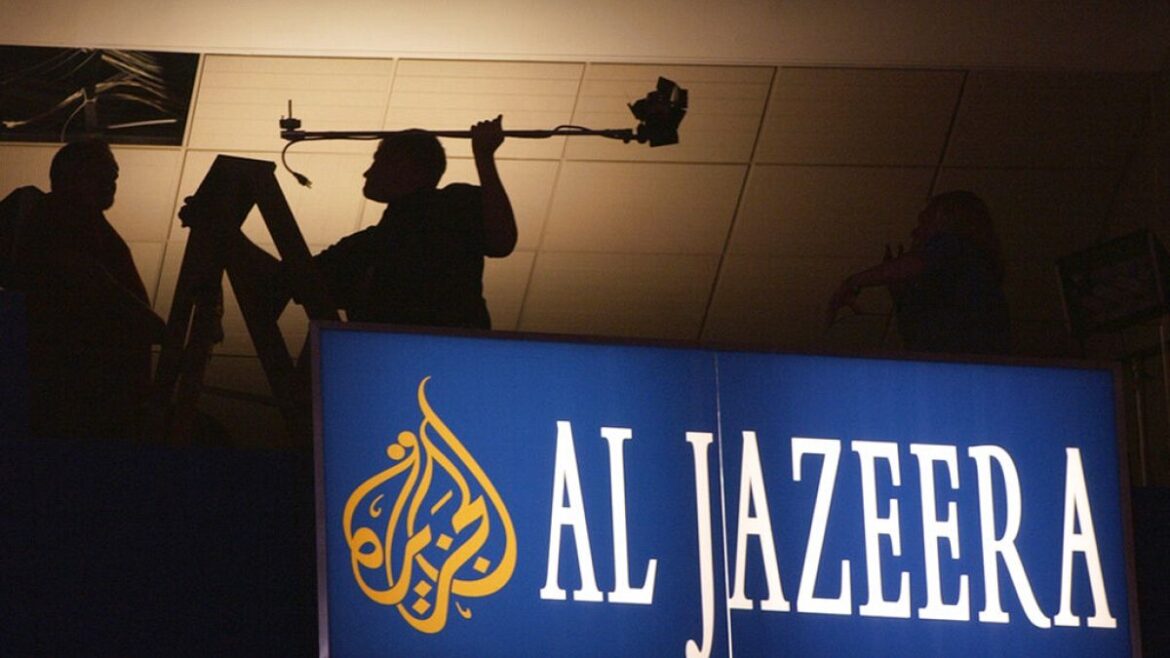The Israeli government voted “unanimously” to close the local offices of the Qatari television channel Al Jazeera, thus aggravating the long-running feud with the channel, at a time when ceasefire negotiations with the Hamas – under the mediation of Qatar – are gaining ground.
Israeli Prime Minister Benjamin Netanyahu said on Sunday that his government voted unanimously to close the local offices of the Al Jazeera television channelwhich is owned by Qatar, thus escalating the long-standing feud between Israel and the channel, at a time when ceasefire negotiations with Hamas – mediated by Qatar – are gaining ground.
Mr. Netanyahu announced the decision on X, formerly Twitter, but the details concerning the implications of this measure on the chain, its date of entry into force and its permanent or temporary nature were not immediately specified.
“My government has made a unanimous decision: the Al Jazeera incitement channel will close in Israel“, Mr. Netanyahu posted on X. Al Jazeera vehemently denied any incitement against Israel.
On its website, the channel, located in Doha, the capital of Qatar, condemned the decision. In addition, several Al Jazeera correspondents spoke on air to give their opinion on the impact of the decision on the channel.
An Al Jazeera correspondent on its Arabic service said that order would affect channel’s operations in Israel and East Jerusalemwhere she has been shooting live for months, since the October 7 attack that sparked the war in Gaza.
It would not affect Al Jazeera’s operations in the Palestinian territories, the correspondent said.
Another correspondent for Al Jazeera’s English channel said the order banned the channel from “maintain or operate offices” in Israel. He added that the channel’s websites would be blockedeven if they were still accessible Sunday afternoon in Jerusalem.
Israeli media said the vote allowed Israel to ban the channel from operating in the country for 45 days, in line with the ruling. Israeli Communications Minister Shlomo Karhi said in a video posted on X that “channel equipment will be confiscated“.
Risk of tensions with Qatar
This decision risksworsen tensions with Qatar at a time when the Doha government plays key role in mediation efforts to end war in Gazaalongside Egypt and the United States.
Relations between Qatar and Mr Netanyahu have been strained, particularly since the latter made comments suggesting that theQatar did not exert enough pressure on Hamas to induce him to abandon his conditions for a truce agreement. Qatar welcomes Hamas leaders in exile.
The two sides appear close to reaching a deal, but many previous rounds of negotiations have ended without a deal being reached.
Israel has long had a difficult relationship with Al Jazeera, whom he accuses of bias. These relations deteriorated sharply almost two years ago when Al Jazeera correspondent Shireen Abu Akleh was killed during an Israeli military raid in the occupied West Bank.
These relations further deteriorated after the outbreak of Israel’s war against Hamas on October 7, when the militant group carried out a cross-border attack in southern Israel that killed 1,200 people and captured 250 more. hostage.
In December, Israeli strike kills Al Jazeera cameraman who was reporting on the war in the southern Gaza Strip. The channel’s Gaza bureau chief, Wael Dahdouh, was injured in the same attack.
Al Jazeera is one of the few international media outlets to have remained in Gaza throughout the war, broadcasting bloody scenes of airstrikes and overcrowded hospitals and accusing Israel of massacres. Israel accuses Al Jazeera of collaborating with Hamas.
While theAl Jazeera antenna in French often resembles the programming of other major broadcast networks, its Arabic version often publishes verbatim video statements from Hamas and other militant groups in the region. She also faced heavy criticism from the United States during the occupation of Iraq following the 2003 invasion that toppled leader Saddam Hussein.
Al Jazeera has been closed or blocked by other Middle Eastern governments, notably from Saudi Arabia, Jordan, the United Arab Emirates and Bahrain, which boycotted Doha for years as part of a political conflict that ended in 2021.



